★★½
“Multiple personality new world order”
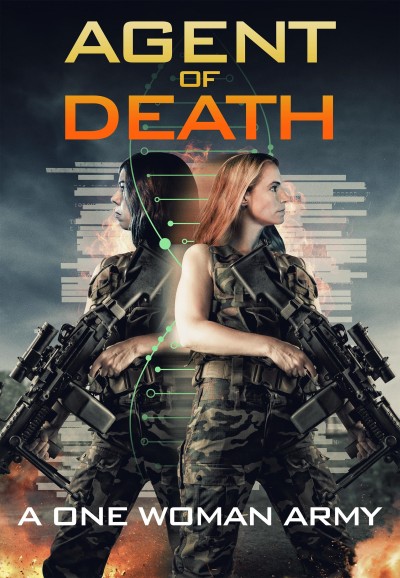 I quite liked the idea here, but the execution just wasn’t quite good enough to do justice to the concept. It feels like a matter of resources to some degree. But I also feel that a few tweaks to things would have paid significant dividends. The heroine is Tara Croydon (Fox), a CIA agent who experiences a crisis after an operation means she’s not around when her father passes away. In her depression, she signs up for a cutting-edge but rather dubious experimental project under the oversight of Hype (Medina). This involves her being given the ability to transform, physically, into one of fifteen different personas which have been implanted into her.
I quite liked the idea here, but the execution just wasn’t quite good enough to do justice to the concept. It feels like a matter of resources to some degree. But I also feel that a few tweaks to things would have paid significant dividends. The heroine is Tara Croydon (Fox), a CIA agent who experiences a crisis after an operation means she’s not around when her father passes away. In her depression, she signs up for a cutting-edge but rather dubious experimental project under the oversight of Hype (Medina). This involves her being given the ability to transform, physically, into one of fifteen different personas which have been implanted into her.
Once she has come to terms with this, it obviously offers a wealth of possibilities for use on missions. However, this is not entirely without a downside, not least the instability of one of the personas, Maeve (Miller). As a result, Tara is cautioned against using Maeve. She also discovers eventually that the whole operation is not as officially sanctioned as she believed, and there’s an unexpected connection to her father. The ending doesn’t exactly tie everything up, leaving the film too open-ended for my tastes. Clearly, Marder was angling for this to spawn a franchise, but since work on this apparently started in 2018 (it seems to have begun as a series called Shifter, which premiered in November 2019), I suspect everyone involved has more probably moved on to other things by now.
With regard to the resources, it tries to be considerably more global than it can manage. Tara’s first mission post-implants is to the former Soviet republic of Georgia, and this is followed up by one to central Africa. Except, in both cases, it’s painfully clear that the production likely never got outside the TMZ of Hollywood or wherever. There’s no reason things had to take place overseas: I could easily come up with domestic operations that could have used her talent just as well. The other problem is the 15 personas are only somewhat different versions of Tara. It would have been much more fun to see her occupying a broad range of shapes, skills and personalities.
It doesn’t help that the thunder has been stolen by Netflix series, In From the Cold, also about a spy with the ability to shapeshift. That came out in January 2022, while this was presumably sitting on a shelf somewhere. It leaves Agent of Death looking like a knock-off, even though that isn’t the case. Something of a pity, since this contains a decent amount of hand-to-hand action (and surprisingly little gun-play for an American show involving the CIA!), with Fox and the various actresses representing her personas, doing reasonable work. On the other hand, Fox’s acting tends to come over as wooden: for example, she’s never able to sell the death of her father adequately. While the time passed here, it’s telling that the cliffhanger ending neither excited nor annoyed me very much.
Dir: Matthew Marder
Star: Alanna Fox, Hugo Medina, Samantha Grace Miller, Richard Rivera





 Sheesh, they’ll adapt anything into a movie these days. Hey, I guess if Clue, Battleship and Ouija can become films, why not Cand… Yeah, to be clear I am joking. Do not, for the love of God, mistake this as about the quest for King Kandy. Though I am amused the Wikipedia page for the game specifically says, not to be confused with this film. For it’s actually about truck-stop hookers being stalked by a murderous psychopath. Which could, I admit, probably be adapted into a pretty decent board-game. The central character is Remy (Luccardi), an escapee from a religious cult, who finds herself stranded at the truck-stop, and befriended by Sadie (Quartin) and the other “lot lizards” there.
Sheesh, they’ll adapt anything into a movie these days. Hey, I guess if Clue, Battleship and Ouija can become films, why not Cand… Yeah, to be clear I am joking. Do not, for the love of God, mistake this as about the quest for King Kandy. Though I am amused the Wikipedia page for the game specifically says, not to be confused with this film. For it’s actually about truck-stop hookers being stalked by a murderous psychopath. Which could, I admit, probably be adapted into a pretty decent board-game. The central character is Remy (Luccardi), an escapee from a religious cult, who finds herself stranded at the truck-stop, and befriended by Sadie (Quartin) and the other “lot lizards” there. Remy eventually becomes part of the “team,” also including gay-for-pay Levi (Campbell), who service the truckers who pass through the high-altitude location – as well as local sheriff Rex (Baldwin). It’s a tough life, with violence a risk they face on an everyday basis, such as when a trucker shows up in a toilet stall with his throat slit, or someone decides Levi is a bit of rough. However, things escalate considerably, because the problem is: you can take the girl out of the cult, but you can’t take the cult out of the girl. After getting a visit from another member, Remy decides, as she puts it, “We must cleanse the world before we can cleanse ourselves of it.”
Remy eventually becomes part of the “team,” also including gay-for-pay Levi (Campbell), who service the truckers who pass through the high-altitude location – as well as local sheriff Rex (Baldwin). It’s a tough life, with violence a risk they face on an everyday basis, such as when a trucker shows up in a toilet stall with his throat slit, or someone decides Levi is a bit of rough. However, things escalate considerably, because the problem is: you can take the girl out of the cult, but you can’t take the cult out of the girl. After getting a visit from another member, Remy decides, as she puts it, “We must cleanse the world before we can cleanse ourselves of it.”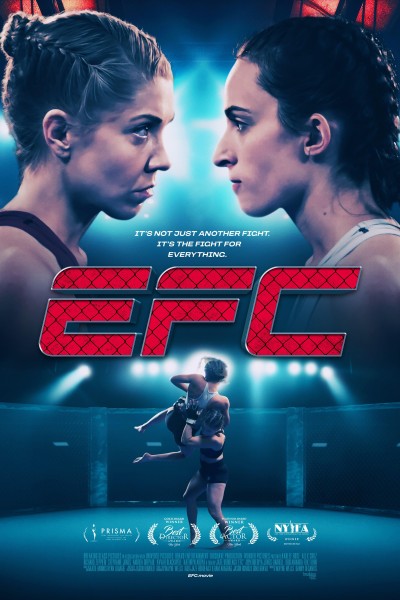 I wanted to like this more than I did, because the makers are aware of the tropes of the mixed martial arts genre, and in the first half, make a concerted (and largely successful) effort to avoid them. However, the movie is much less successful in the second half, and ends up replacing those cliches with a different set. The result leaves the film just as formulaic – albeit not in the direction I expected. It begins in expected fashion, with a title bout in the EFC, between Alexa Star (Aboya) and Cassady Jones (Rose). The former prevails, but the champion is then attacked after the bell by her opponent.
I wanted to like this more than I did, because the makers are aware of the tropes of the mixed martial arts genre, and in the first half, make a concerted (and largely successful) effort to avoid them. However, the movie is much less successful in the second half, and ends up replacing those cliches with a different set. The result leaves the film just as formulaic – albeit not in the direction I expected. It begins in expected fashion, with a title bout in the EFC, between Alexa Star (Aboya) and Cassady Jones (Rose). The former prevails, but the champion is then attacked after the bell by her opponent.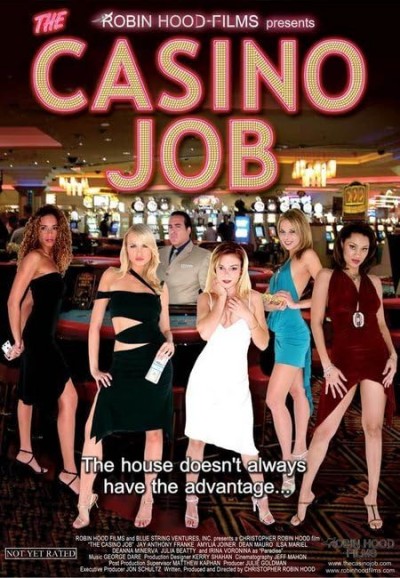 Make no mistake, this is a cheap and tawdry excuse to show nekkid women, which may well leave you with a more cynical view of human nature. But if you’re going to watch a cheap and tawdry excuse to show nekkid women… You could probably do a lot worse. The main area in which this punches above its weight is in the script, which has had some thought put into it. The viewer may actually leave the film knowing more about Nevada gaming regulations than they did going in: nekkid women
Make no mistake, this is a cheap and tawdry excuse to show nekkid women, which may well leave you with a more cynical view of human nature. But if you’re going to watch a cheap and tawdry excuse to show nekkid women… You could probably do a lot worse. The main area in which this punches above its weight is in the script, which has had some thought put into it. The viewer may actually leave the film knowing more about Nevada gaming regulations than they did going in: nekkid women 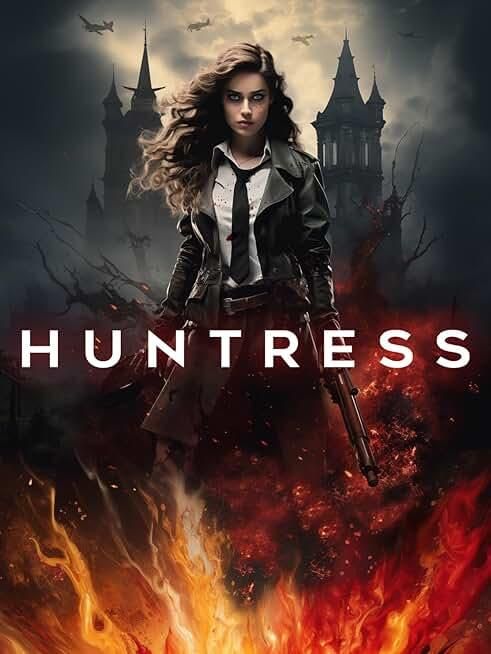 The Texas Chainsaw Massacre was fairly notorious in Britain in the eighties and nineties, being famously banned on video. Naturally, this meant I had to see it, and… I was initially underwhelmed. However, I’ve gradually come to appreciate its raw intensity over the years. If I ever doubted its merits, watching this largely shameless knockoff should act as a reminder. Because it shows how flat and uninteresting the premise can be, when executed poorly. This relocate things from seventies Texas to Germany in the last days of World War II. A medevac team is trying to get injured and grumpy officer, Colonel Franklin (Christian) to a hospital before his leg falls off from sepsis.
The Texas Chainsaw Massacre was fairly notorious in Britain in the eighties and nineties, being famously banned on video. Naturally, this meant I had to see it, and… I was initially underwhelmed. However, I’ve gradually come to appreciate its raw intensity over the years. If I ever doubted its merits, watching this largely shameless knockoff should act as a reminder. Because it shows how flat and uninteresting the premise can be, when executed poorly. This relocate things from seventies Texas to Germany in the last days of World War II. A medevac team is trying to get injured and grumpy officer, Colonel Franklin (Christian) to a hospital before his leg falls off from sepsis. Yes, I went there again. After
Yes, I went there again. After 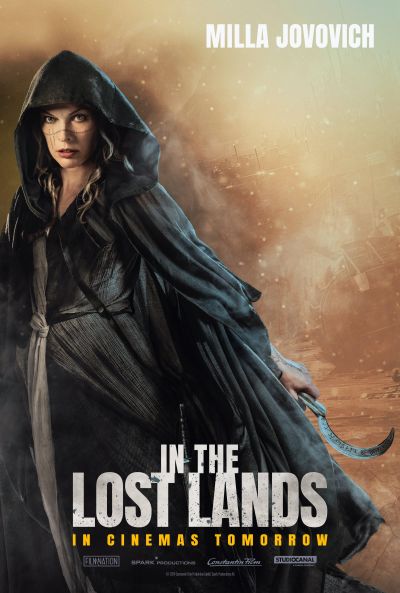 Well, this crashed and burned at the box-office in no uncertain fashion, taking in less than ten percent of its $55 million budget. While not surprising – dark fantasy doesn’t exactly have a good track record of late – it is a bit of a shame. I loved the look of the film, which is often spectacular, reminding me of things like The Chronicles of Riddick in a willingness to step back and overwhelm the viewer with scale. I am, of course, contractually obliged to watch anything with Milla Jovovich in it, and she’s her usual good value here. Bautista had a solid track record too, and he’s certainly appropriate for the role. But then, there’s the plot…
Well, this crashed and burned at the box-office in no uncertain fashion, taking in less than ten percent of its $55 million budget. While not surprising – dark fantasy doesn’t exactly have a good track record of late – it is a bit of a shame. I loved the look of the film, which is often spectacular, reminding me of things like The Chronicles of Riddick in a willingness to step back and overwhelm the viewer with scale. I am, of course, contractually obliged to watch anything with Milla Jovovich in it, and she’s her usual good value here. Bautista had a solid track record too, and he’s certainly appropriate for the role. But then, there’s the plot… Amazon Prime doesn’t have the best reputation for its original movies. Indeed, I’m hard pushed to think of one which I’d want to watch again. That record is unchanged after this, a fairly ludicrous Die Hard knock-off which even an Oscar winner like Viola Davis can’t do much to salvage. It’s another in the recent series of “president in peril” films. When your movie takes inspiration from the likes of Olympus Has Fallen, you’re setting the bar low from the get-go. Then cobble together a script involving the three boogeymen of current culture – AI, cryptocurrency and white men. Finally, pretend Kamala Harris won the election, and was a military-trained bad-ass. Given all this, two stars is probably an achievement.
Amazon Prime doesn’t have the best reputation for its original movies. Indeed, I’m hard pushed to think of one which I’d want to watch again. That record is unchanged after this, a fairly ludicrous Die Hard knock-off which even an Oscar winner like Viola Davis can’t do much to salvage. It’s another in the recent series of “president in peril” films. When your movie takes inspiration from the likes of Olympus Has Fallen, you’re setting the bar low from the get-go. Then cobble together a script involving the three boogeymen of current culture – AI, cryptocurrency and white men. Finally, pretend Kamala Harris won the election, and was a military-trained bad-ass. Given all this, two stars is probably an achievement. 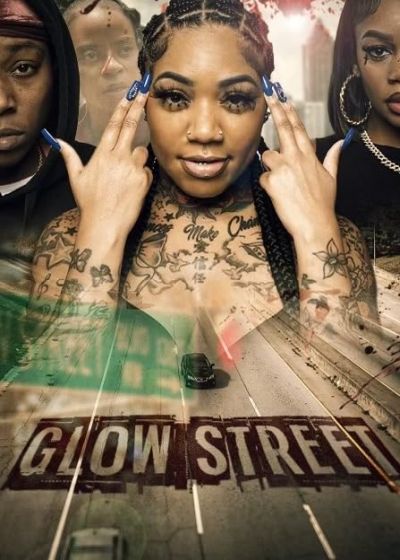 This would be a creditable little film, if the makers could ever be bothered to finish it. Yeah, it ends in what is supposed, I presume, to be some kind of cliffhanger. But it botches the landing badly, first by leaping forward two weeks instead of showing us the climax to which things have been leading up. Then, it just… ends, without resolution in any of the major plot threads. It’s a shame, because to that point, if doing nothing particularly new, this is competent in its execution, and I’ve seen a lot worse. It gets the basics right, with a half-decent story and characters: in the urban genre, this is sadly less common than you would hope.
This would be a creditable little film, if the makers could ever be bothered to finish it. Yeah, it ends in what is supposed, I presume, to be some kind of cliffhanger. But it botches the landing badly, first by leaping forward two weeks instead of showing us the climax to which things have been leading up. Then, it just… ends, without resolution in any of the major plot threads. It’s a shame, because to that point, if doing nothing particularly new, this is competent in its execution, and I’ve seen a lot worse. It gets the basics right, with a half-decent story and characters: in the urban genre, this is sadly less common than you would hope.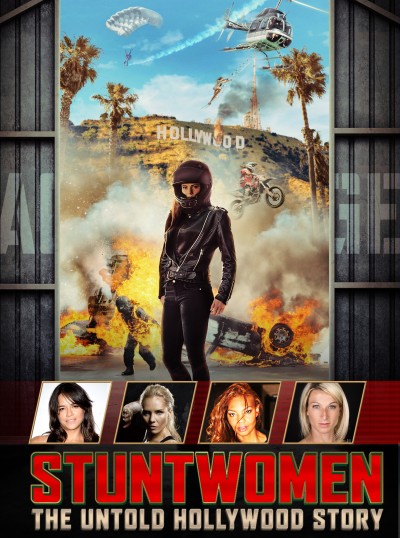 Regular readers will already be aware of the long history of stuntwomen, going back a hundred years to the
Regular readers will already be aware of the long history of stuntwomen, going back a hundred years to the